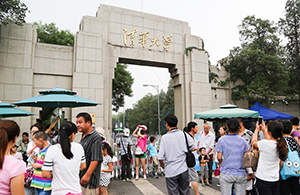Consolidating social security
By Grayson Clarke (China Daily) Updated: 2012-10-31 07:5018th party congress Preview
One of the unheralded successes of the last decade has been the development of China's social security system. The nationwide social security system was in its infancy in 2002, with participation mainly limited to workers from the State-owned enterprise sector. The numbers in the main enterprise pension scheme then had hardly reached 100 million compared with 284 million today. And people in the urban medical scheme in 2002 were barely 15 percent of the 2011 total of 473 million.
Expenditures in 2002 were similarly low with pension and medical insurance payouts being about 20 percent and 10 percent of the 2011 total. The vast majority of the workers, let alone the rural labour force, were not covered and had virtually no protection from the catastrophic risks of ill health and industrial injury.
Fast forward to 2012, and the picture becomes very different. The right of workers to social security are enshrined in the Social Insurance law. In terms of numbers, the Chinese social security system is the biggest in the world with more than 90 percent of the population being part of at least one scheme.
The government has added two major schemes for rural residents - health (2003) and pension (2009). Besides, urban residents not in employment - children, students and the elderly who never managed to have a salaried job - now enjoy important protection from the most critical of illnesses. About 330 million people are now part of the rural pension scheme. Protection is partial of course - households and individuals still need to have significant savings to fund insurance co-payments and pay for drugs and devices not on the approved official lists. And for pensioners who want to have a comfortable retirement, a government pension plan paying less than 50 percent of average salary is hardly sufficient.
But the greatest triumph of the last decade and conversely its greatest danger is that citizens now have expectations. Young workers look to companies to enrol them in social security programs not only because they have started thinking about retirement but also because it is mandatory for migrants to be paid-up members to get their feet on the local housing ladder. Even housemaids are asking their foreign employers to pay social security contributions.
At the national level, social security topped people's concern in the last two years from being the fifth or sixth main issue just five years ago. That is a mark of great achievement, not failure.

I’ve lived in China for quite a considerable time including my graduate school years, travelled and worked in a few cities and still choose my destination taking into consideration the density of smog or PM2.5 particulate matter in the region.











